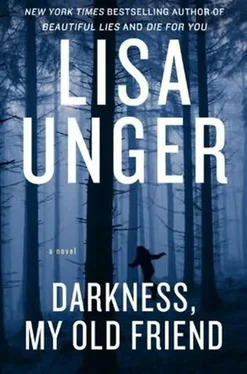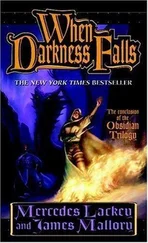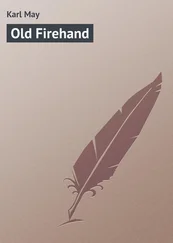“Great.”
Her mother switched off the television with the remote. And they sat like that, listening to the rain hit the windows. Her mother rubbed her back, and Willow closed her eyes. The room was warm, and the couch was soft.
She must have dozed off, because when she woke up, she was alone on the couch and she could hear her mother on the phone. Her voice had a funny tone, soft and sweet.
“No, I don’t think it’s inappropriate,” she said. “I think it’s fine.”
Bethany laughed then, and she sounded so light and happy that it made Willow angry in a weird way. How can she be happy when I’m so miserable?
“That sounds nice,” Bethany said. “Okay.”
When Willow walked into the kitchen, the table was set for three. Bethany had made pizza from scratch. As her mother hung up the phone, Willow cleared the third place. She didn’t need to eat dinner reminded that she’d been stood up.
“Who was that?” she asked when her mother hung up the phone.
Her mother was using the pizza cutter to make slices in the pie. The kitchen was a disaster-sauce and flour everywhere. Bethany was not a tidy cook.
“I thought you were sleeping,” said Bethany, not looking at Willow. But she had this big smile on her face.
“Who was it?” asked Willow. “Not Richard? He’s not still coming this weekend, is he?”
“No, it wasn’t Richard,” said Bethany. “And I don’t know if Richard is still planning on coming this weekend. Do you want him to? You guys haven’t talked in months.”
“I really couldn’t care less,” said Willow. She brought the salad to the table and flopped down in her seat.
“Well, I told him he could come if he wanted to,” she said. “Either way, we’ll do something fun. We should check out that old cider mill. It’s supposed to be really cool.”
“Oh, yeah,” said Willow. “It sounds like a blast.”
They spent the rest of the meal talking about school-her classes, Mr. Vance, how maybe she should try out for drama next year. Then, after dinner, Bethany helped Willow answer her essay question about A Separate Peace: “Did Gene purposely knock Fin from the branch? Why or why not? If he did, what does it say about Gene and the friendship he shared with Fin?” Mom thought that was such a great question. But Willow just thought it was a cheat, since they’d been discussing it all week in class. Plus, she’d already read the book in seventh grade. But Mr. Vance said he liked to teach it again because the themes were so “complicated.”
It wasn’t until hours later, when Willow was lying in bed thinking about Cole and trying to go to sleep, that she realized her mother had never answered the question about who was on the phone.
That night she dreamed that Cole called her and told her how sorry he was for letting her down, for not being there when he said he would. He told her he loved her and that he couldn’t wait to see her again. But then she woke up and realized that she’d only been dreaming, and the crushing disappointment she felt was almost too much to bear.
“I have to be honest. After our last session, I didn’t think you’d be coming back.”
Dr. Dahl was well pressed as always, looking particularly dewy and flushed, as though he’d just come from his daily workout. An open bottle of water, half empty, sat on the table beside his chair.
Jones shifted in his seat. “Well, to be honest, I wasn’t sure I would.”
The doctor looked at him with an open, expectant gaze. He seemed hopeful. Maybe even a little smug? No, not that. But there was something about his expression that annoyed Jones.
“So what are we doing here?” Dr. Dahl said.
Jones started to say how it was about Maggie, how he was afraid of what might happen to their marriage if he didn’t keep coming to therapy. And even though this was part of the reason, it wasn’t the whole reason.
“I realized that you were right,” he said, even though it practically killed him. He cleared his throat. “That I’ve been holding back, afraid to move forward into the next phase of my life.”
The doctor gave him an approving nod, which made Jones want to get up and leave again.
“What have you been afraid of, do you think?”
You had to love the guy. He went right into it. No foreplay at all. The headache was already starting.
“Well, I guess I’ve been afraid that there is no next phase,” said Jones. “That there would just be this puttering around for the next however-many years, taking pointless classes and mowing lawns. We’d take a few trips, go on some cruises. You know, I’ve been afraid that this was it . The only thing left was a kind of slow, inevitable trek toward the end. I mean, I don’t even play golf.”
“But you’re a young man. Plenty of law-enforcement folks retire young, take their pensions, and find other work.”
“I guess I don’t feel that young sometimes,” said Jones. “But anyway, some things have happened over the last couple of days.”
He told the doctor about the cases he was working on, about Maggie’s suggestion that he might hang out a shingle.
“And you’re happy to be engaged in this type of work again? It gratifies you?”
“It does. I guess I originally came to police work as a kind of penance,” said Jones. “A way to make up for wrongs I’d perpetrated.”
“And has that changed?” The doctor took a sip from his water bottle.
“It has.”
“What does it mean to you now?”
Jones thought about it a moment. But he didn’t have to think about it much. He had a strange clarity on the subject.
“You know, I think I’m a little lost unless I’m helping people.”
Part of Jones expected the doctor to praise him for his selflessness. But Dr. Dahl was quiet a moment, seemed to be turning over Jones’s words.
Then, “You know, I think that’s fine, Jones. As long as you don’t use the work of helping others to hide from things inside you that need tending. I guess we both know you did that for a long time, first with your mother, then in your profession.”
What was it with these guys? Was there some kind of manual they were all reading from? Maggie had said almost the same words. Jones didn’t respond, really, just mimicked that affirming noise the doctor often made.
“But we can talk more about that next time,” said the doctor. “Our time is up.”
This was the other thing that always irked Jones about therapy. When your time was up, you got booted. It was like you were just getting comfortable, getting used to confiding in someone, and then you were asked to leave.
Back in his car, he turned on the cell phone; he expected messages. But there was nothing. Nothing from Chuck about the bones they’d found, which were being analyzed, or about Michael Holt, who’d apparently disappeared into the mines and had not yet emerged. Nothing from Paula Carr’s parents; he’d called them twice, only to get voice mail. Nothing from Jack at the credit bureau on Paula Carr, or on Cole’s mother, Robin O’Conner.
This was the thing about investigative work that people just didn’t get. There were all these dead, waiting spots: waiting for DNA results-or in this case dental records-for contacts to wade through a river of other requests just like yours, for people who didn’t want to talk to you to call you back. That’s why cops drank after hours and overate on the job. How were you supposed to deal with the agitation, the urgency in the spaces where you had no control whatsoever? You went and got some food, scarfed it down in your car.
While he was still holding the phone, staring at it in frustration, it started to ring as though he’d willed it to do so. Ricky had set Jones’s cell so that it sounded like the ringing of an old rotary phone. The tone was oddly comforting, that solid clanging of a bell, that sound of a real mechanism working-even though it wasn’t that. The world had gone so quiet, all the noises that machines made now were soft and ambient, musical.
Читать дальше












